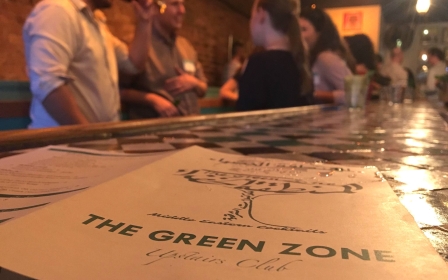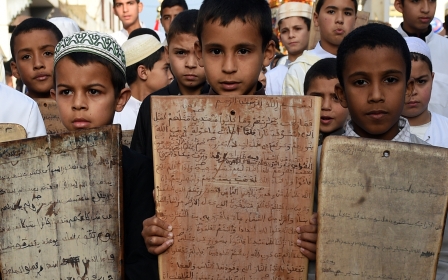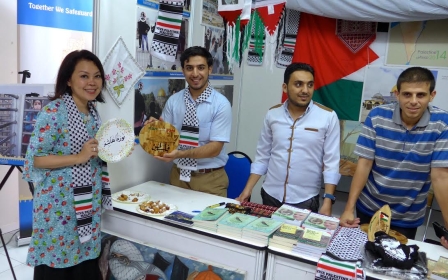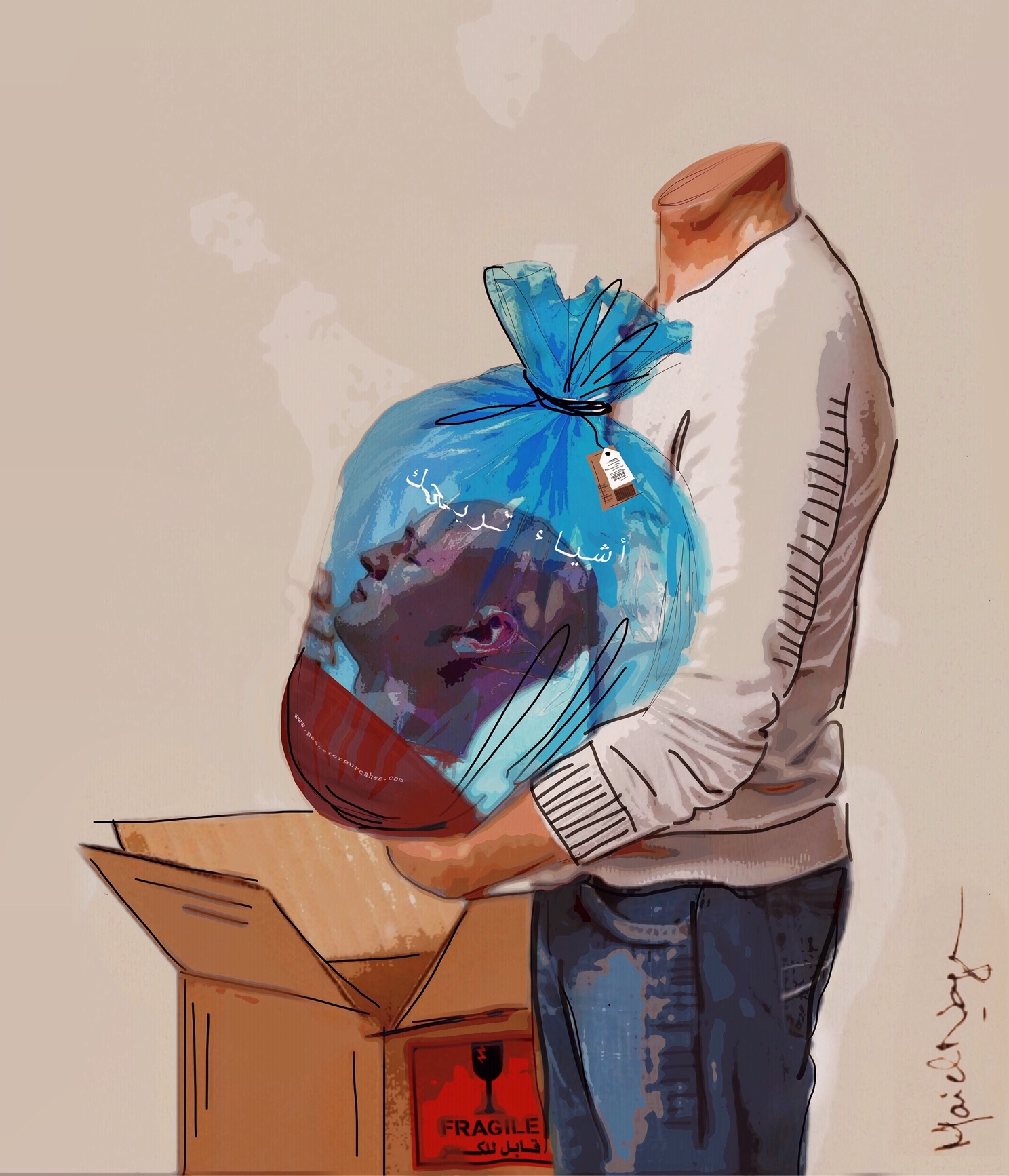
Ten bizarre Egyptian sayings to try and wrap your head around
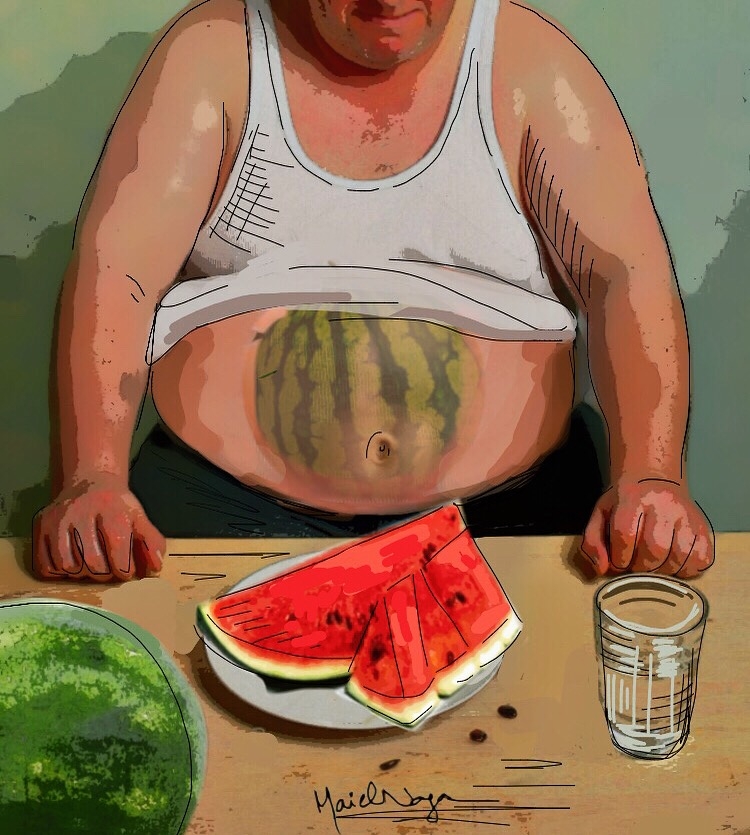
Egyptian student Mai El Naga was at a cafe in Cairo when she overheard a conversation littered with Egyptian phrases. When she realised just what a struggle they would be to translate, she decided to make illustrating them her quest for Inktober, a month-long art challenge.
One of these Egyptian sayings describes someone as "buying their brain" (which translates as "ishtirry dmaghak"). It's used figuratively to advise someone not to worry. Another similar saying advises you to "stick a watermelon in your belly" ("hut f'batnak bateekha seefy"). The idea is to encourage someone to take it easy (all images MEE/Mai El Naga)
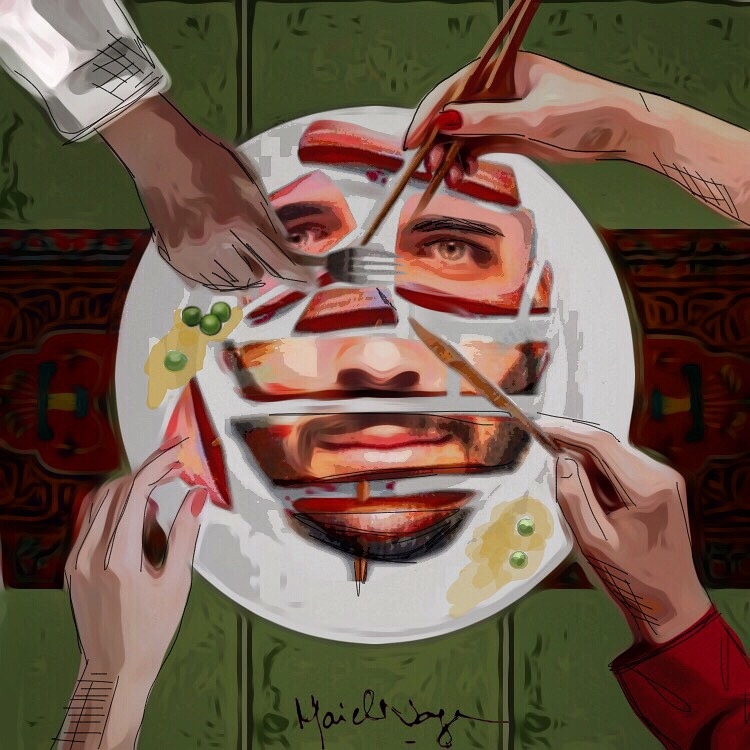
"It just hit me how often phrases are just so different figuratively then the literal translation," says El Naga, 22, who is also a full-time medical student at Cairo's Ain Shams University and runs her own fashion business. "I started sketching one, then I started painting it digitally. I posted the first one [on Instagram], then I would ask people to guess what the theme was." One of El Naga's images illustrates the saying "people ate my face" ("el naas kallit wishy"). It's used in Egypt to express humiliation.
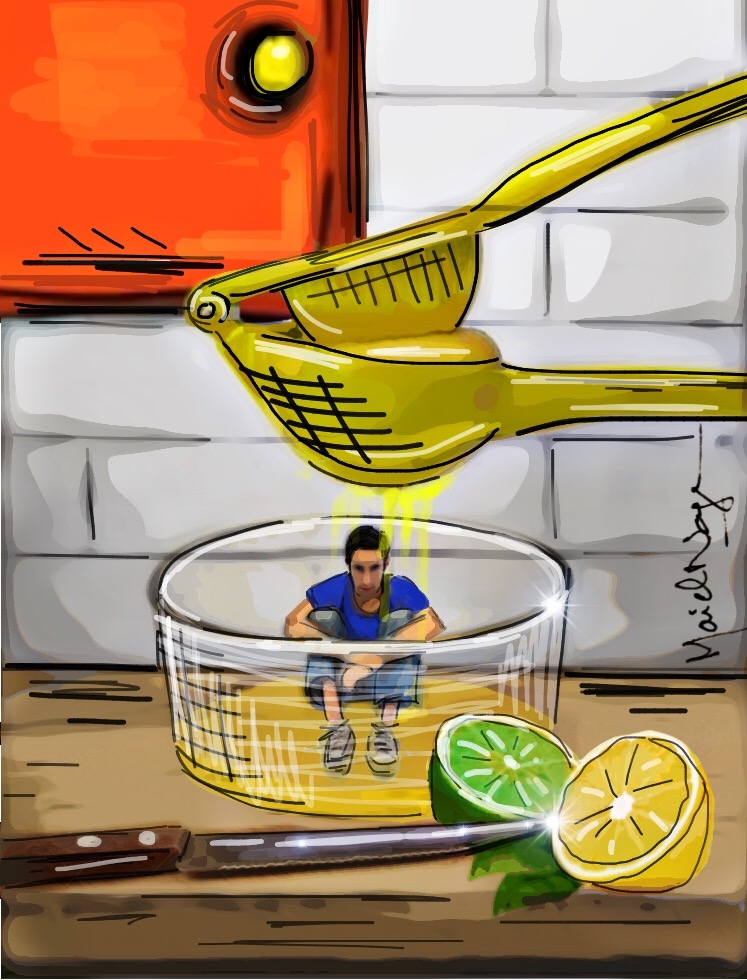
El Naga discovered that many Egyptian sayings related to food, which she says proves that in Egypt it is "a big part of our culture". For example, the expression "he's squeezed a lemon over himself" ("'aaser 'ala nafso lamoona") refers to someone who finds an experience exceptionally sour. It's similar to the English expression "a bitter pill to swallow".
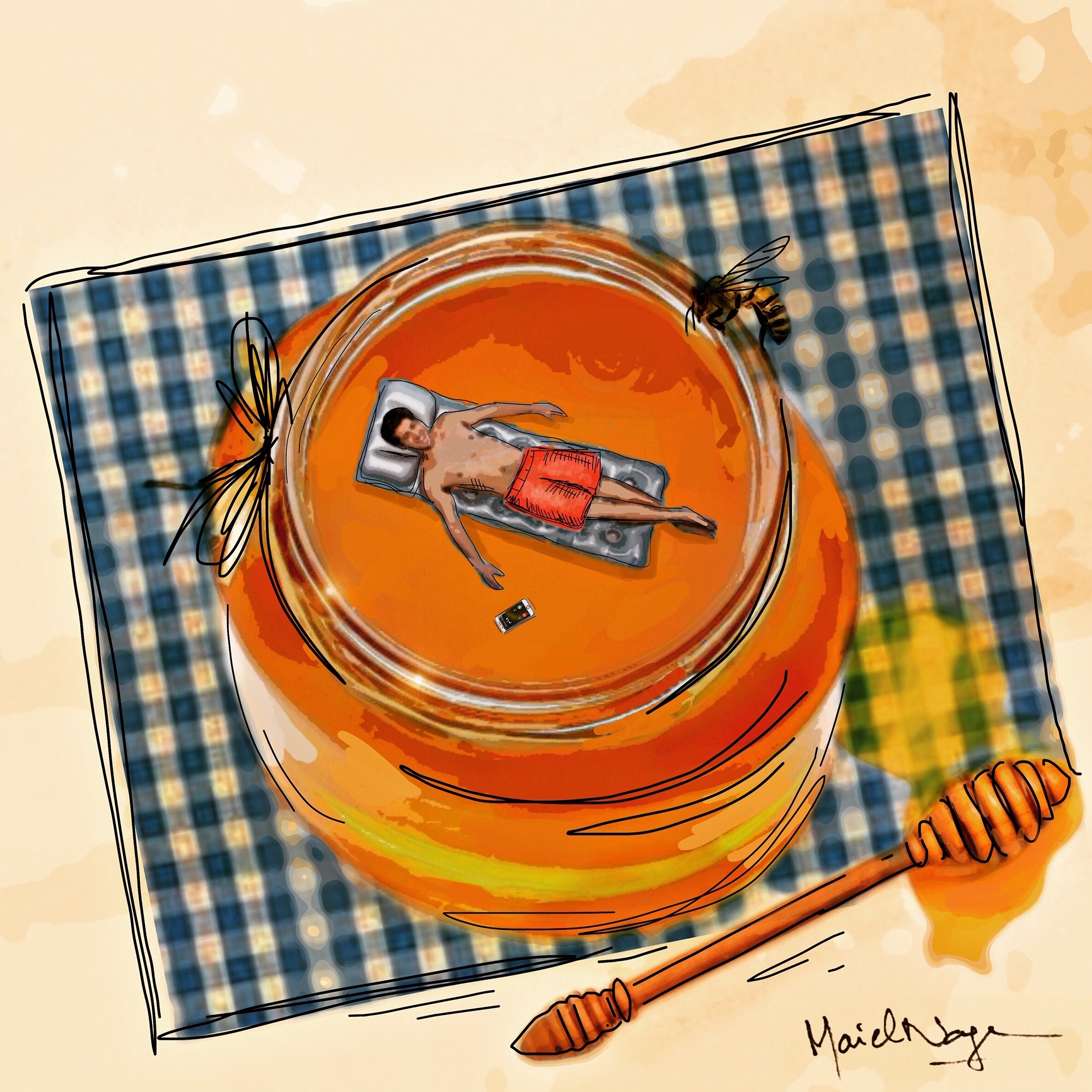
At first, El Naga's series illustrated popular English sayings such as "getting under my skin", "on cloud nine" and "butterflies in my stomach". But then she decided to change tack, since most of her followers are Egyptian. "It hit me how, as Egyptians, we have ones that are actually more striking or more odd than the English ones," she explains. In Egyptian, to say that someone is "sleeping in honey" ("naayem fil 'assal") means that they are indifferent.
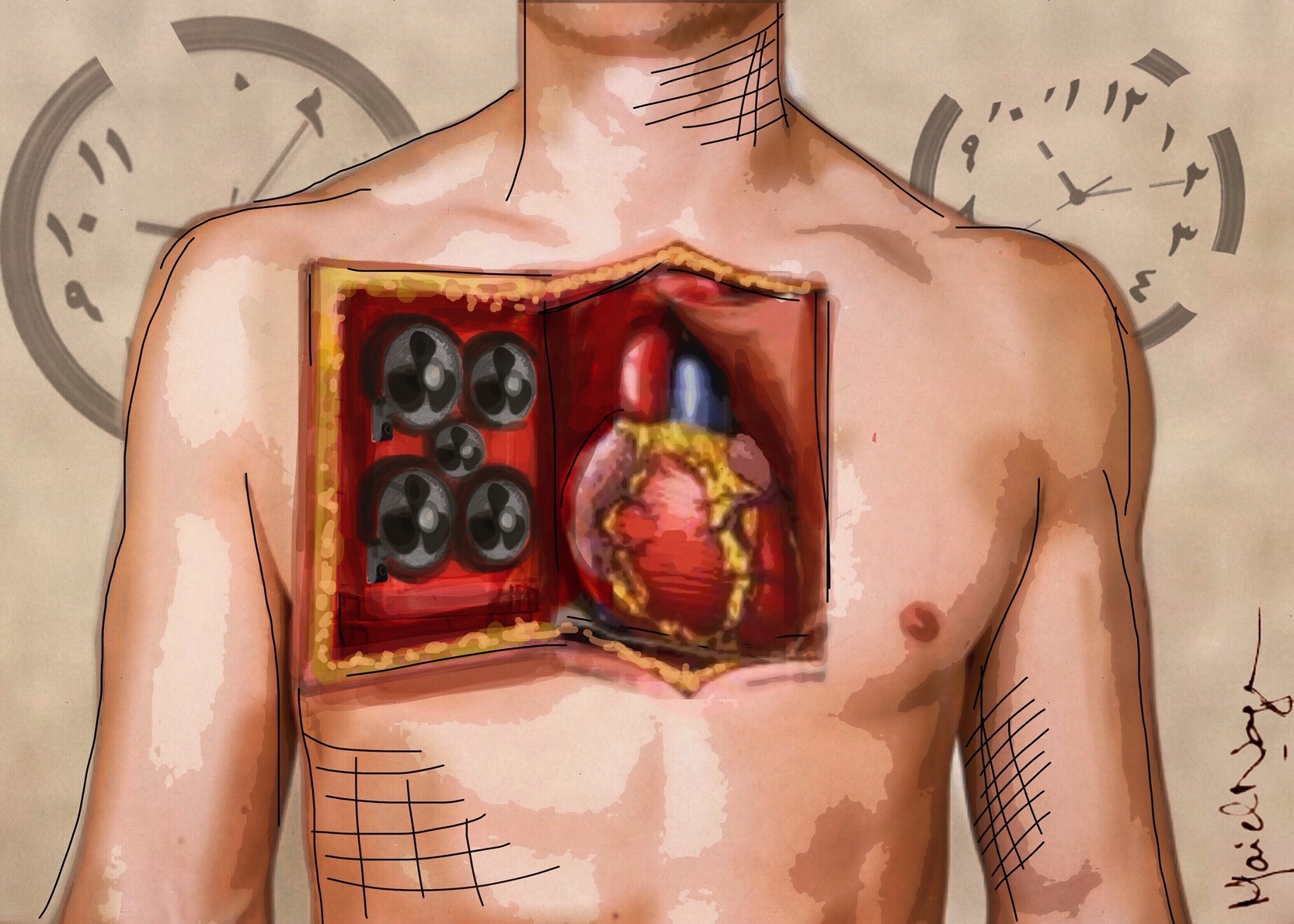
El Naga posted the first images on her Instagram account, such as this of a person with "fans on his heart" ("'ala albo maraweh"), meaning that they are overly relaxed about time-keeping or efficiency. Soon she was inundated with feedback and her posts were shared widely. "I would get comments on how they would enjoy looking at the pictures," El Naga says. "So I started collecting more of the different sayings, from people, from friends, from conversations I overheard. And then I started making more of them."
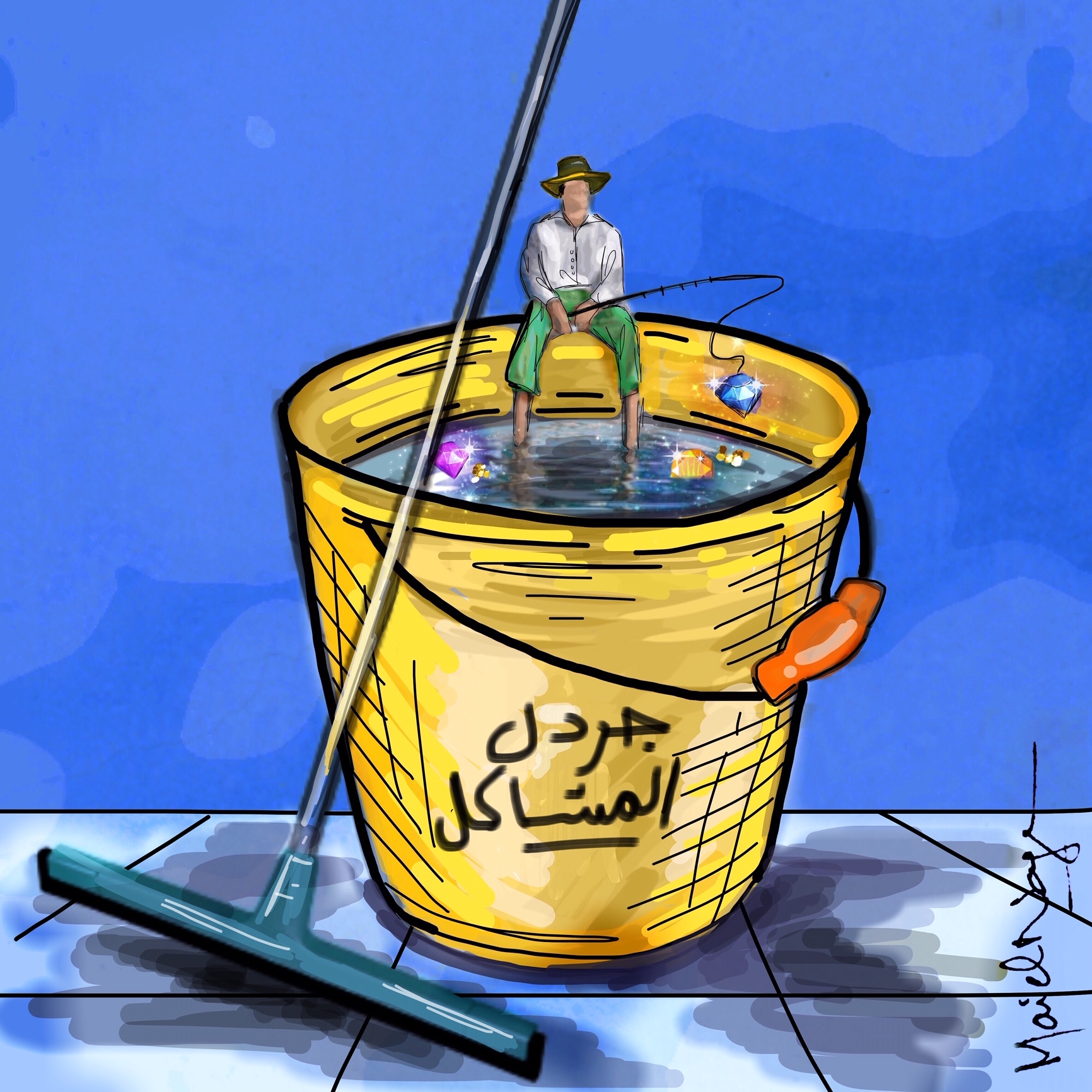
El Naga says the illustrations also help non-Arabic speakers understand the sayings, including a Russian teacher who contacted her to ask if she could use her images to teach Arabic. Some of the sayings are perhaps easier to explain than others, like "to fish in murky water" ("byistaad fi mayya 'ikra"), the Egyptian equivalent of “fishing in troubled water”.
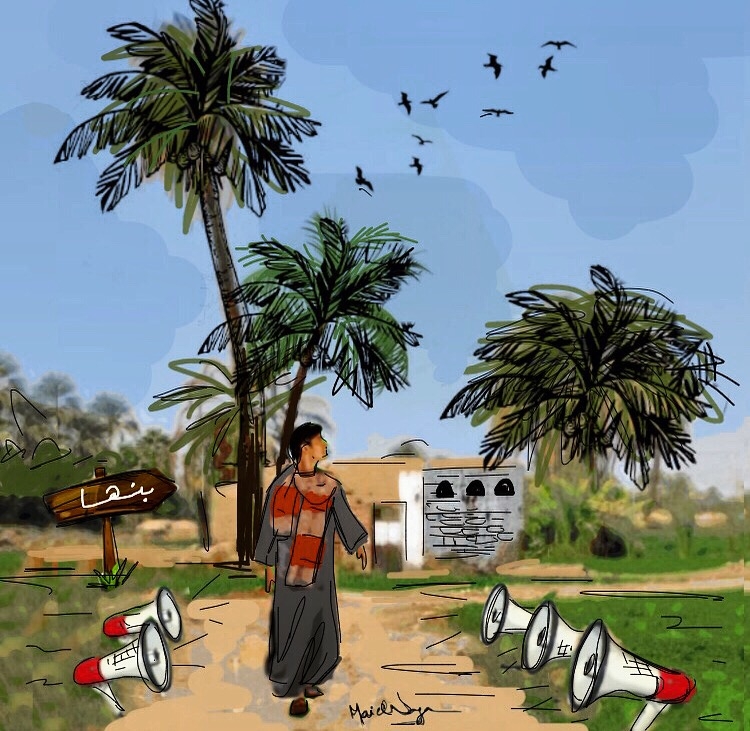
El Naga found that some of the stories behind the sayings shed light on Egyptian culture, including "he's pretending to be from Banha" ("aamil nafso min Banha"), which is used to describe someone who is faking a state of oblivion. Banha, a busy rail hub, is the first station north of Cairo. Passengers used to wrangle a seat on the pretext that they were only going one stop – but then stayed on the train and hoped no one would notice amid the commotion.
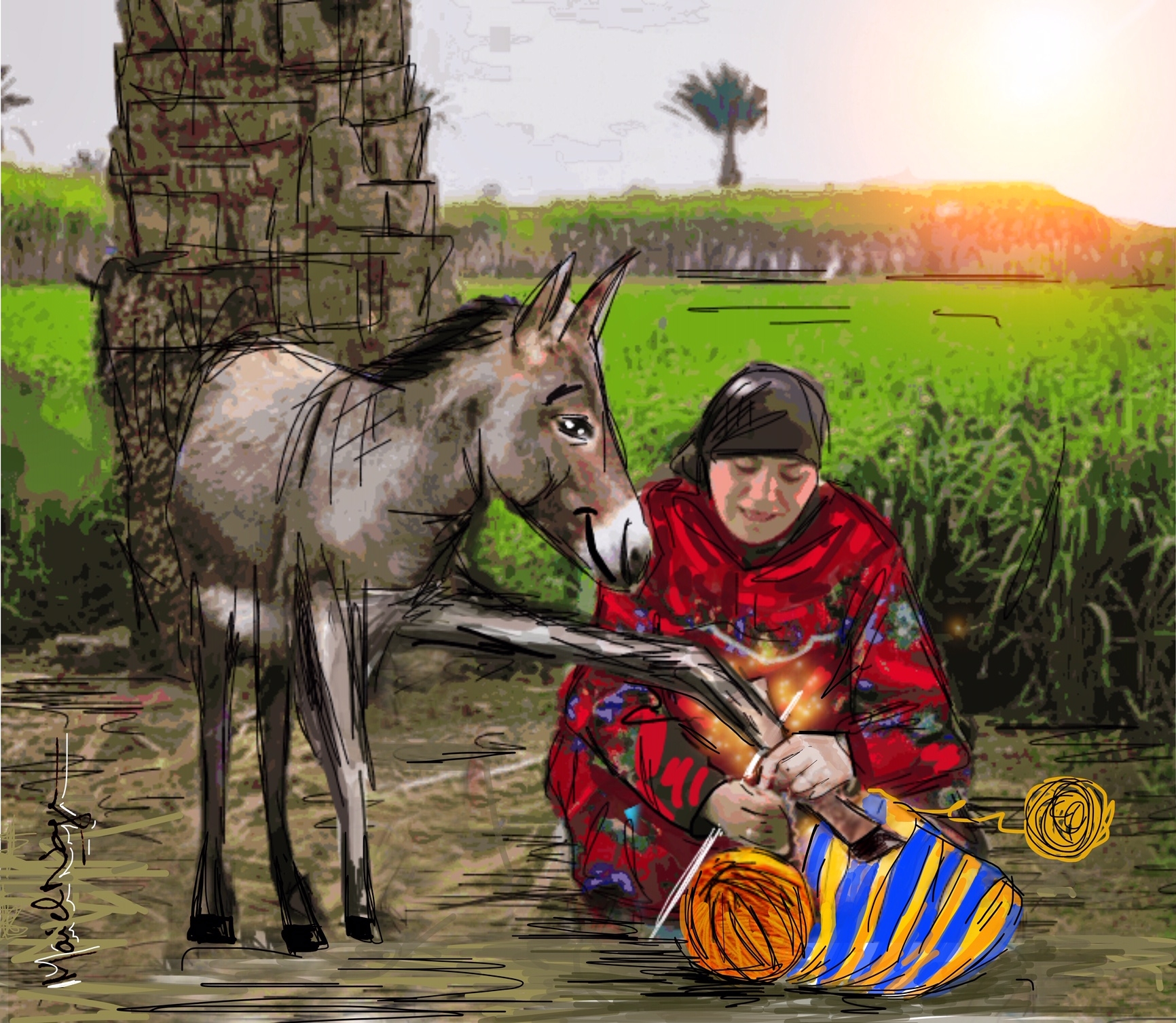
"People were DMing me all these different phrases that they use on a daily basis, and that they would find very odd," says El Naga. This illustration is of the idiom, "a clever woman can spin yarn even if all she has is a donkey’s leg" ("el shatra tighzil birigl homaar"). It's used to describe a resourceful person.
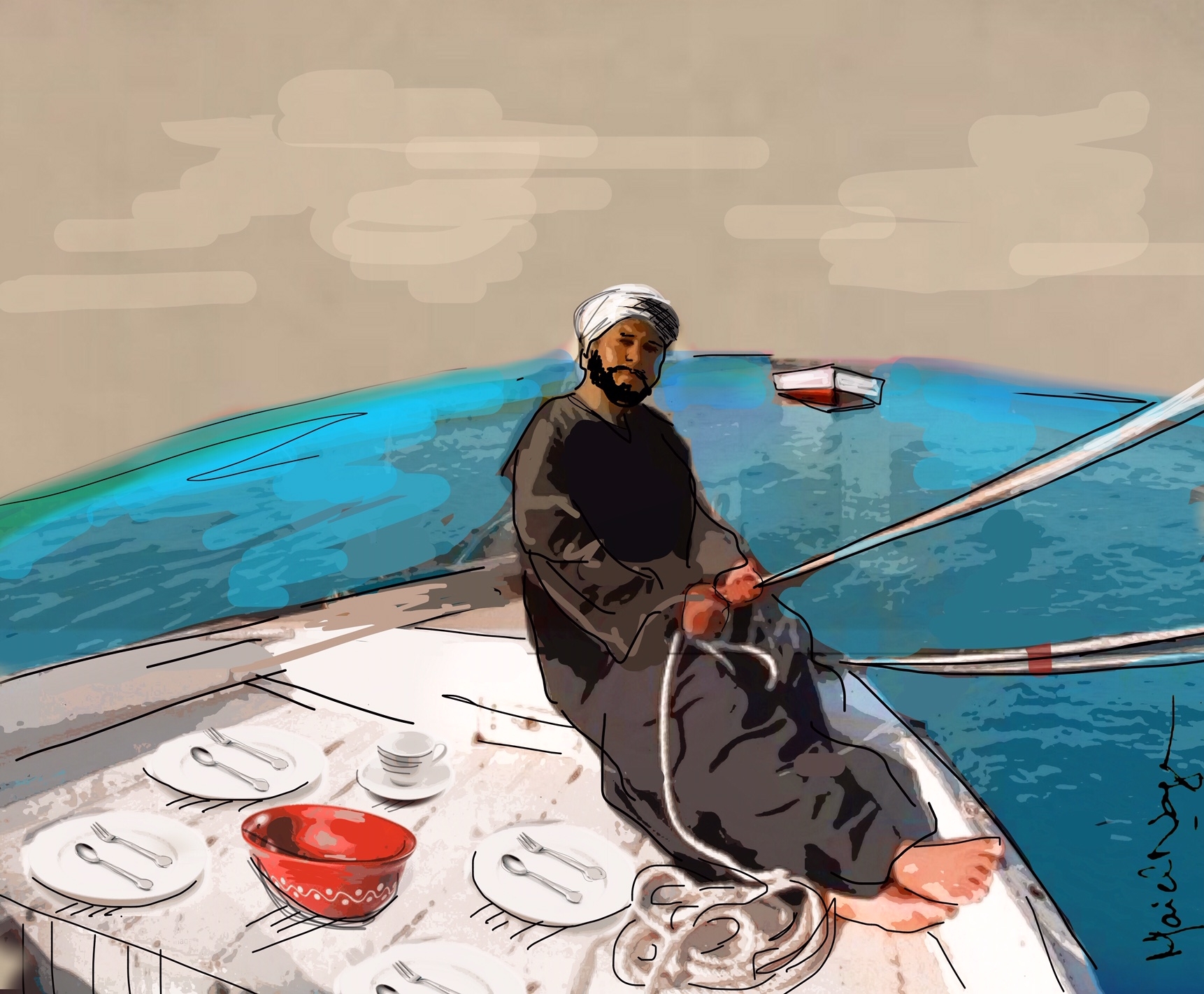
Another common Egyptian expression is "a boatman’s invitation" ('"ozoomit marakbiya"). It's used when someone is invited out of courtesy rather than actual desire, based on the idea of a fisherman out at sea inviting a person on the distant shore to join them for lunch.
El Naga's selection is just a drop in the ocean of colloquial expressions common to Egypt and the Arab world. She is now working on a new series to uncover contradictions in Egyptian culture. One illustration shows a young man in a ripped t-shirt, selling branded perfumes from a tray balanced on his head. "I just feel like there's so much to explore," she says.
This article is available in French on Middle East Eye French edition.
Middle East Eye delivers independent and unrivalled coverage and analysis of the Middle East, North Africa and beyond. To learn more about republishing this content and the associated fees, please fill out this form. More about MEE can be found here.


